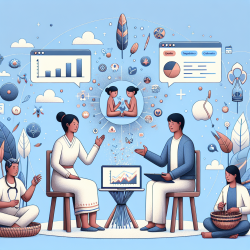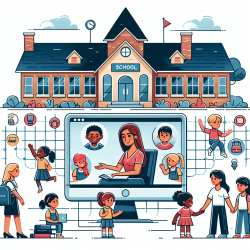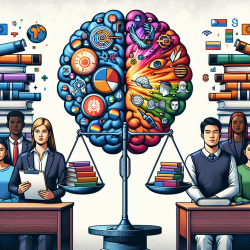Boost Your Therapy Skills: Insights from Traditional Activities and Indigenous Health
As practitioners dedicated to improving the outcomes for children, it is essential to stay informed about the latest research and how it can be applied to our practice. A recent study titled "Traditional activities and general and mental health of adult Indigenous peoples living off-reserve in Canada" offers valuable insights that can enhance our understanding and approach to therapy.
Key Findings from the Study
The study analyzed data from the 2012 and 2017 Aboriginal Peoples Surveys (APS) to investigate the associations between traditional Indigenous activities and self-perceived general and mental health. The activities examined included hunting, making clothes or footwear, making arts or crafts, and gathering wild plants.
- Hunting: Associated with good mental health in both 2012 and 2017 surveys. In 2017, it was also linked to good general health.
- Making Clothes: Associated with poor general and mental health, potentially due to reverse causation as these activities are often undertaken therapeutically.
- Artmaking: Associated with poor general and mental health, which may also reflect reverse causation.
Implications for Practitioners
These findings have several implications for speech-language pathologists and other practitioners working with children, particularly those from Indigenous backgrounds:
1. Integrating Traditional Activities
Incorporating traditional activities such as hunting or gathering wild plants into therapy sessions can have a positive impact on mental health. These activities can be adapted to suit the age and abilities of the children, fostering a sense of cultural identity and community connection.
2. Understanding Therapeutic Activities
The association of making clothes and artmaking with poor health highlights the need to understand the context in which these activities are undertaken. These activities might be more common among individuals already experiencing poor health, using them as therapeutic outlets. Practitioners should be mindful of this when recommending such activities and consider the individual needs and health status of each child.
3. Encouraging Further Research
The study underscores the importance of culturally sensitive research and interventions. Practitioners are encouraged to engage in or support further research to explore the specific impacts of traditional activities on children's health and well-being. This can lead to more effective, culturally appropriate therapy strategies.
Moving Forward
By integrating these insights into practice, practitioners can enhance the therapeutic experience for children, particularly those from Indigenous communities. This approach not only supports better health outcomes but also fosters a deeper connection to cultural heritage and identity.
To read the original research paper, please follow this link: Traditional activities and general and mental health of adult Indigenous peoples living off-reserve in Canada.










